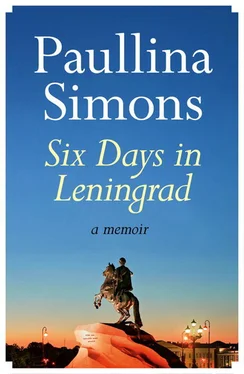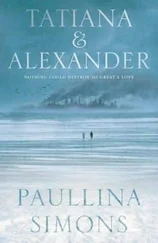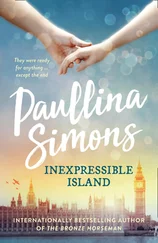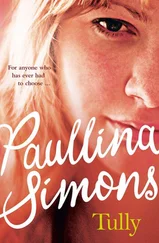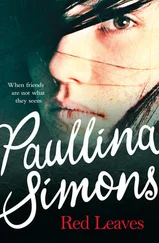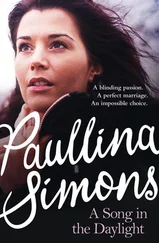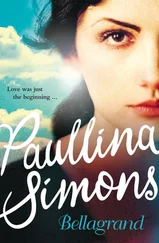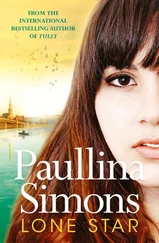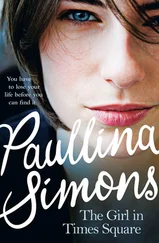I finally said to Kevin that it looked like I would have to go on my own. He didn’t love the idea, my going to a “place like Russia” by myself. He said I should bring my sister.
I ran the idea by my father. “Kevin thinks I should take Liza to Russia with me,” I said.
My father was quiet on the phone for what seemed like an hour, smoking and thinking, and then said, “ I could come with you to Russia.”
I had not thought of that.
A girlfriend of mine said, “Oh, that’s neat! When was the last time you and your dad took a trip together?”
“Never.”
That had been nine months ago. And little by little the trip took shape. My father told me, “Paullina, I’m retiring at the end of May. We have to go before I retire.” My father is the director of Russian Services for Radio Liberty/Radio Free Europe. Working has defined and consumed him. Working is and has been his life. And with good reason. His team of writers translated western news, both political and cultural, into Russian and then broadcast it over short waves to Eastern Europe and the Soviet Union. They broadcast to Russia 24/7 with 12 hours of original programming every day. For twenty-five years. I believe that four people were responsible for bringing down the Berlin Wall and Communism during 1989-91: Ronald Reagan, Margaret Thatcher, Pope John Paul II, and my father.
We couldn’t find a convenient time for both of us to go. Finally my father postponed his retirement a few months and we settled on July 1998. It was the perfect time to go, my father told me, because we would stand a chance of having some nice weather. Also the nights would be white. “That’s a sight to see. You do remember white nights, Plina?”
“Not much, Papa.”
What would be the shortest time I could go to Russia, and not traumatize my kids? I figured a day to travel there, a day to travel back, and then six days in St. Petersburg. But I vacillated, procrastinated, mulled.
Truth was, I didn’t want to go.
In 1973 There Were Sharks
I was born in St. Petersburg when it was still called Leningrad and came to America when I was ten. We left Leningrad one fall day and lived in Rome while we waited for our entry visa to the United States.
Those were blissful months. Every Thursday my mother gave me a few lire to go to the movies by myself and buy a bag of potato chips. That bag was worth three movies. I’d never eaten anything so delicious in Russia. The movies were all in Italian, of which I spoke exactly three phrases: bella bambina, bruta bambina and mandjare per favore . Cute baby, ugly baby, and food please. It was two more phrases than I spoke in English.
We spent my tenth birthday in Rome. My parents asked me what I wanted, and I said, gum. I got gum. Also some strawberry Italian gelato and then we went to the American movies. We saw The Man for All Seasons . I liked the gum better than the movie. I didn’t understand a word of it, but at the end, a man had his head cut off.
We came to America two days before Thanksgiving 1973. Our first big American meal was turkey and mashed potatoes and something called cranberry jelly. We celebrated in Connecticut, in the home of a young man we met briefly in Vienna and who invited us to his house for the holidays. We gave thanks for our amazing luck, for getting out of Russia, for coming to America. After all, America was every Russian’s beckoning light. America seemed like heaven. True, first you had to die, but then , you had — America! The death was leaving Russia. Because once you had left you could never go back.
America was life after death.
That Thanksgiving when everyone else at the table was done with their meal, my father walked around the table and finished all the food that the Americans had left behind on their plates. People of a certain age born in Leningrad do not leave food on their plates.
Our second American meal was the lasagna our landlady brought up to our apartment in Woodside, Queens. Don’t ask me how this is, but during our stay in Rome, Italy, I had not tasted tomato sauce once. I had not had lasagna. I had not had pizza. I did not know tomato sauce until our Italian landlady knocked on our door in Woodside.
In America there was Juicy Fruit gum, and chocolate ice cream, which I had never had, and something called Coca Cola, which I also had never had. And television. I found a children’s cartoon: Looney Tunes . I had never seen anything like it in Leningrad. In Russia, we had black and white war movies, black and white news. There was some animated programming, but it looked like war movies, though less interesting.
War movies and news. The Olympics. Which was the single most exciting thing on Soviet television, but unfortunately the Olympics came only once every four years.
Suddenly, in my life there was Looney Tunes ! Bugs Bunny! Elmer Fudd. Porky Pig! Our first TV set was black and white, but the cartoons were straight out of someone else’s Technicolor dream. The bunny blew up a pig and a hunter, ran away, blew up a cave and fell off a cliff, all in eight minutes.
The war movies in Russia were set in gray tents and starred two gray men who talked non-stop until there was a battle, followed by more dialogue, all concluding in a blaze, more dialogue and eventual victory for Mother Russia. The movies lasted, it seemed to me, as long as the war itself.
In Queens, after eight minutes, the Looney Tunes bunny disappeared and was suddenly replaced by a lady selling towels made of paper. Towels made of paper ? The cartoon was over, so I turned off the TV, utterly disappointed.
It took me many weeks and the force of inertia to discover that the cartoon did not end but was merely interrupted by the lady selling towels made of paper. Imagine my happiness!
I used to read in Russia, and who could blame me? What else was there to do? Now that I had Bugs Bunny, all reading vanished for a good four or five years.
In school I would occasionally be asked to talk to the other students about my experience of life in the Soviet Union. That’s how it was put: “Your experience of life in the Soviet Union.” I wanted to say even then that it wasn’t my experience of life, it actually was my life, but I didn’t. I did give my broken-English little talk: about the communal apartment, the small rooms, the cockroaches falling on my bed while I slept, about the bed bugs and the smell of decomposing skunk they made when I accidentally squished them, about the lack of food, the lack of stores, the lack of my father.
When I was asked, “How did it feel living with that kind of deprivation?” I would shrug and say, “I didn’t know it was deprivation. I thought it was just life.”
My American friends grew up with Coca Cola and Jesus Christ.
I grew up with hot black tea and the astronaut Yuri Gagarin — the first man in space.
Kevin watched I Dream of Jeannie and Star Trek .
I watched Gagarin’s funeral, and a one-hundred-and-twenty part film called Liberation — burning tents and dark winter nights — which they rebroadcast every December because Decembers near the Arctic circle just weren’t bleak enough.
I’d never seen a palm tree, I’d never seen an ocean, I’d never heard a church service, and had never read Charlotte’s Web. I read The Three Musketeers, Les Misérables and a Russian writer named Mikhail Zoschenko. By the time I was ten I had read all of Anton Chekhov and Jules Verne, but what I wanted, though I did not know it, was Nancy Drew and Laura Ingalls Wilder.
What was baseball? What was peanut butter? I didn’t know. I knew what soccer was, what mushroom barley soup was, what perch was.
Читать дальше
